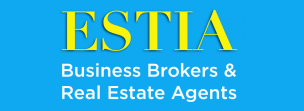Which is more viable: starting a business from the ground up, or buying an established business? This article highlights factors to consider when weighing up your options.
Risk Involved
The main reason investors and entrepreneurs opt to acquire an established business, rather than starting a new business, is that there is seemingly less financial risk involved compared to starting a new business.
This is because an established business already has the required property, plant and equipment set up and operating. In addition, an established business already has an established customer base, which provides stability and some guarantee of cash flow.
In contrast, starting a new business will require a substantial capital outlay for property, plant and equipment. There is also the the task of attracting and retaining customers for a brand new business.
Example:
Consider a simple cafe. Suppose there is a cafe for sale that earns $5,000 net profit per week, and is being offered for sale for $390,000 (annual net profit before tax multiplied by 1.5). It is fully equipped and has a lease secured for the next ten years. All being equal with new ownership, it would take the new owner 1.5 years to earn back their investment.
Now consider the option of starting a brand new Cafe. You would incur the following costs:
- You would first need to register the relevant licenses and permits.
- Initial costs to to fit out the premises with the appropriate fittings and fixtures, machinery and equipment
- Working capital, to cover operating costs such as employees, cost of goods, electricity and outgoings.
All of this will can cost hundreds of thousands of dollars, all with the risk of the business not succeeding.
Return on Investment (ROI)
While buying an established may involve less risk in terms of business operations, the cost of acquiring an established business should be compared to the cost of beginning a new business.
Sometimes, an established business for sale will be offered at a price greater than the costs involved in establishing the business. This is because what is being sold is not merely the plant, equipment or stock, but also goodwill.
In accounting terms, goodwill is the difference the sale price and the fair value of the net identifiable assets of the business. This goodwill may represent the value of profits for a particular period of time – for example, 1.5 years. Goodwill in general terms is the price you pay beyond the value of the business, for its reputation and established nature.
How To Calculate ROI
A simple formula for calculating return on investment is:
ROI = (Gain from Investment – Cost of Investment) / Cost of Investment
Continuing the previous cafe example, consider a 2 year gain from the investment is $5,000 weekly net profit x 104 weeks ($520,000). As the cafe was acquired for a price of $390,000, the return on investment would thus be:
ROI = (520,000 – 390,000) / 390,000 = 33%.
Meaning you will have earned back all of the costs, plus an additional 33%.
Now suppose you started a brand new cafe from scratch, and incurred a total cost of $300,000 in setting up the business. The main task would be that of developing and retaining a customer base. Whether or not this can be done depends on the location of the business, its offerings and how well potential customers respond.
Summary
The benefits of buying an established business are clear: it is fully equipped and ready to go. There is an established customer base, and the new owner can simply pick up where the old owner(s) left off.
The risks of buying an established business are also clear: there is no guarantee that past performance will be replicated in the future.
The risks of starting a new business: spending large amounts of money on initial capital and start up costs, with the potential of the business not earning enough revenue, or not having consistent cash flow, to recover these costs.

